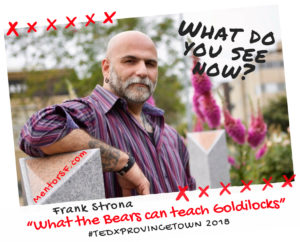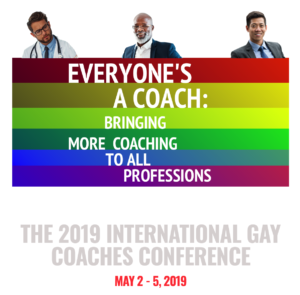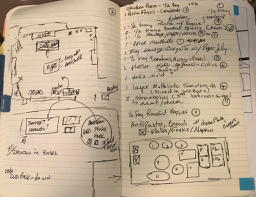A Life Coach?
From time to time I ask folks to offer thoughts and experiences that connect with the MentorSF themes. This week we have some great content that builds on my previous post how to be the best we are meant to be with a guest spot from Kristie Santana, founder of the National Coach Academy (NCA) whose book “Walks of Like” book I purchased some time back
Question
Ask the average person what they think the average life coach session is like, and you’ll probably receive an answer like this:
“Well, first you explain to the coach your problem or challenge, and then the coach listens attentively and provides feedback on how to best tackle the problem. Then you leave the session feeling empowered to take on any challenge life throws your way.”
While all of the above is true, it doesn’t tell the complete story. Coaching is about much more than solving real-world problems.
Don’t get me wrong, solving problems out there in the real world is a core component of any reputable coach training program you enroll in when you first learn how to become a life coach. But experienced coaches know that before any external problem solving can happen, their client must feel internally prepared first. This is the part of coaching that is often overlooked.
Here are three unexpected benefits of coaching most clients receive after working with a life coach.
Accountability
Expectation: A life coach is a stranger who provides objective guidance on solving problems, but in the end I’m on my own and must make my own decisions.
Reality: While it’s true that only the client can make the important decisions, forming a relationship with a life coach creates a whole new layer of accountability that will follow the client every step he takes.
And far from being a stranger, a coach becomes a trusted friend and confidant from the moment the client shows any degree of vulnerability. It is simply human nature: we tend to grow closer to those who see us struggle, and after just one session the coach is no longer a stranger. The coach becomes someone to be accountable toward, and this can make all the difference between losing control and taking control.
Self Discovery
Expectation: I will tell my coach the problem I’m facing and the coach will tell me how to overcome them.
Reality: Before tackling anything specific, a good coach knows the first true battle is always in the mind. I like to bring up one of my favorite quotes by Will Smith. He said, “The question isn’t ‘Can you handle the situation?’. The question is ‘Can you handle your mind?’. Can you manage the thoughts and the emotions that are trying to poison your progress?”
This is the most valuable takeaway message any coaching client can take from their coaching session–almost regardless of what the session was about, specifically. While coaches are trained to tackle a variety of different situations and challenges, it is the ability to manage your mind that will empower a client to success.
This is very different from what most clients walk into a coach’s office thinking, which is usually externally focused–”How can I solve this problem?”
Perspective
Expectation: A coach will understand how just how important this challenge is to me, and if I don’t overcome it, my life just won’t be right.
Reality: While understanding your priorities and respecting your position, a coach will help you realize that you can overcome even worst-case scenarios, and the challenge facing you at the moment, while important, does not and will not define your life as a whole.
When you walk out of your first coaching session, instead of feeling a sense of dread or nervousness to face the challenge before you, you’ll have a renewed sense of confidence, knowing that your life is not defined by the outcome. That is a powerful mental shift that many students do not expect before making their first appointment.
Conclusion
The best coaches I’ve met understand that clients already have what it takes to overcome challenges. They understand that their purpose, more than providing clarity to any external challenge, is to empower clients and bring out their sense of self-efficacy. Once that is achieved, the client is ready to tackle whatever life throws their way.
Kristie Santana is the founder of National Coach Academy (NCA). She is a Master Certified Coach with over 15 years experience coaching clients all over the world.
Filed in Engage! Post | Tagged: coaching

 Love your way
Love your way







 That’s right, back to those concepts we all learned in school about coming together to build, create or share as a group. Collaboration doesn’t have to be a hard thing if you know a few simple tricks;
That’s right, back to those concepts we all learned in school about coming together to build, create or share as a group. Collaboration doesn’t have to be a hard thing if you know a few simple tricks;




 Not mention how useful they can be for the
Not mention how useful they can be for the  In the last two years, there’s been an influx of electronic versions adaptable for both the laptop and the mobile device. Many of which offer monthly subscriptions as well as an annual or limited free plan. I dabbled in a few of them as well.
In the last two years, there’s been an influx of electronic versions adaptable for both the laptop and the mobile device. Many of which offer monthly subscriptions as well as an annual or limited free plan. I dabbled in a few of them as well.


